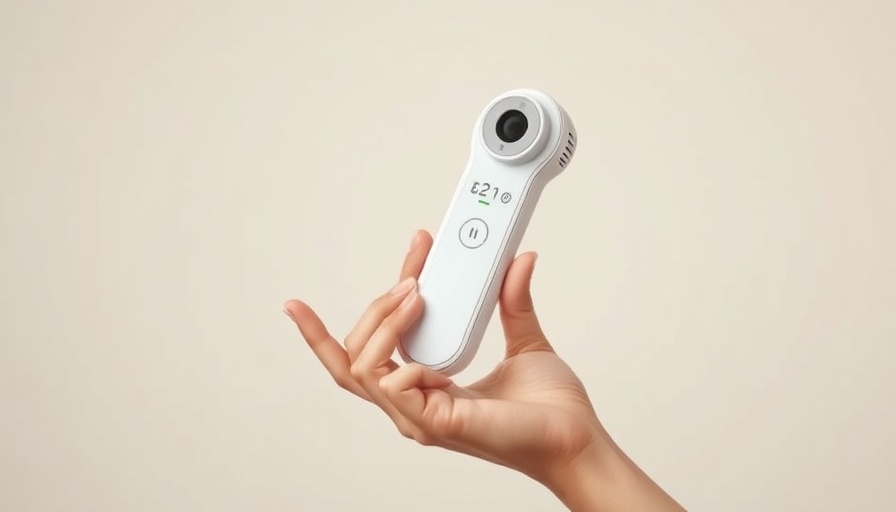
Revolutionizing Women’s Health: The FDA’s Groundbreaking Approval
On May 9, 2025, the FDA made a pivotal decision by approving the first-ever at-home cervical cancer screening tool, marking a significant step in women’s health and wellness. As the burden of cervical cancer looms large, this innovative method offers an accessible alternative to traditional Pap smears, a procedure that many women find uncomfortable and invasive. This new test from Teal Health brings HPV testing directly into the homes of women, allowing for a more comfortable screening experience.
The Science Behind the At-Home Test
The at-home test is designed with a spongelike wand that women can use to collect samples vaginally. This method eliminates the need for a speculum, commonly used during Pap smears, which many find intimidating or painful. The central aspect of this test is its focus on HPV (human papillomavirus), a virus responsible for nearly all cervical cancer cases. By shifting from traditional Pap testing to HPV screening, medical research has paved the way for easier screening options. Studies have shown that this test is as accurate as the traditional Pap smear, which bolsters confidence in this new at-home approach.
Accessibility and Empowerment: A Vital Shift
Accessibility remains a critical issue in healthcare, especially for women who face barriers in traveling to appointments or fitting them into their schedules. The FDA's approval of the at-home test not only provides a solution but also empowers women to take control of their health from the comfort of their homes. This shift recognizes the diverse challenges faced by women in accessing care and caters to those who may have previously avoided routine screenings due to logistical hurdles.
Examining the Future of Health Tech in Gynecology
The significance of this approval extends beyond the immediate benefits of cervical cancer detection. It is part of a broader trend toward the integration of technology in healthcare. Looking forward, we can expect an influx of health tech innovations designed to support women’s health needs. For instance, as telemedicine and remote monitoring continue to evolve, similar tools could emerge across various health areas, ultimately shaping an era of patient-centered care. The ability to conduct simple yet essential health screenings at home could transform our understanding and approach to women's wellness.
Changing Attitudes and Normalizing Conversations
The conversation surrounding cervical cancer, HPV, and routine screenings is often shrouded in stigma and discomfort. The introduction of an at-home test may serve as a catalyst for change, encouraging more open discussions about women’s health issues. By normalizing these conversations, we can break down barriers that lead to delayed screenings and unfortunate diagnoses. Given that cervical cancer remains a significant health concern, fostering an environment where women feel comfortable discussing their health openly is essential.
What This Means for Women
The approval of an at-home cervical cancer screening is more than a medical advancement – it’s a statement about women’s agency in their healthcare. It highlights the importance of choice and convenience, enabling women to prioritize their health on their own terms. As we progress in this health revolution, staying informed is critical. Women are encouraged not only to utilize this new testing method but also to maintain regular communication with their healthcare providers about any results, anomalies, or further steps.
The Importance of Continued Education and Advocacy
Understanding cervical health and staying updated with medical advancements is more vital than ever. By bridging education gaps, organizations and healthcare professionals can better advocate for women’s health needs. Educational efforts surrounding HPV and cervical cancer can empower women to take proactive measures concerning their health. As this at-home testing tool hits the market, systemic educational initiatives can bolster the use of these innovations, leading to better health outcomes.
Final Thoughts
The FDA's approval of the first at-home alternative to the Pap smear marks a revolutionary moment in cervical health and women's healthcare overall. This development validates the ongoing efforts to enhance health accessibility through technology, ultimately empowering women to take charge of their health. As we move forward, continual support for innovations in health tech will be crucial to creating an inclusive and effective healthcare environment for all.
 Add Row
Add Row  Add
Add 




 Add Row
Add Row  Add
Add 

Write A Comment